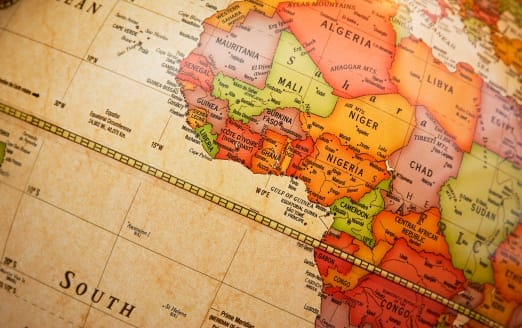The Wharton Small Business Development Center (SBDC) is revealing its international side this summer. Having already co-hosted a visit on campus by Brazilian dignitaries earlier in June, it partnered again with the Mayor’s Commission on African and Caribbean Immigrant Affairs and the World Trade Center to put on a forum on business opportunities in Africa.
The speaker of the hour was Dr. Kingsley Chiedu Moghalu, deputy governor of the Central Bank of Nigeria, who addressed the role (and promise) of small and medium sized businesses (SMEs) in the growth and development of the Nigerian economy.
Moghalu estimated that 90 percent of all business enterprises in Nigeria are SMEs, with a total of 11.6 million in the country. Yet according to a 2007 study by the International Finance Corp., these businesses only add up to 10 percent of the gross domestic product (GDP), versus the 50 percent of GDP that SMEs constitute in the United States.
Part of the cause could be that 80 percent of Nigeria’s “small and midsize” businesses are actually on the micro scale, according to Moghalu.

Dr. Kingsley Chiedu Moghalu
In addition, many of the SMEs operate in the informal economy. And no matter what part of the economy they operate in, smaller businesses face a lack of adequate credit and other financing issues—a problem that plagues small businesses throughout Africa, Moghalu noted.
Moghalu ticked off a list of other issues that could confound entrepreneurs and investors in Nigeria, including poor infrastructure, an unstable macro climate, poor implementation of government regulations and bureaucratic bottlenecks, to name a few.
In order to spur growth, Nigeria’s Central Bank is facilitating private investment in such sectors as agriculture. But another option in Nigeria, Moghalu surmised, would be to follow the U.S. model of venture capital, angel networks and other investment options not involving banks.
Moghalu was bullish—on Nigeria in particular and Africa overall.
“Every problem is an opportunity,” he told the audience. “Africa is open for business.”
Nigeria’s current estimated GDP of $250 billion is “massively outdated,” he said, adding that it is currently being recalculated and, when it is, could be upward of $400 billion. If it hasn’t already, Nigeria is planning to overtake the GDP of South Africa within five years.


























